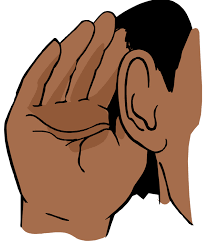AURAL TEST TRAINING

What are Aural Tests?
When students take practical exams, part of the examination will include aural tests. This is the case for ALL instruments and the aural test is worth 18 marks (exams are 150 in total) Therefore, my pianists and flautists need to develop their aural skills.
The tests involve listening and responding to music. The easiest tests require candidates to clap the beat, recall rhythms, sing back short melodies and identify basic features of music such as dynamics and tempo. Aural tests becoming more challenging as musicians progress through the grades. Eventually students have to sing back specific parts, sight sing, identify cadences, modulations and also have to demonstrate a good understanding of musical styles and periods of music history.
Students can easily overlook the importance of aural tests and lose valuable marks. It is wise to spend some time practising aural skills in your own time, not just with your tutor in the lesson once a week. I am putting together a bank of resources here so that students can spend time practising their aural skills. I will also outline the requirements of each grade.
**NOTE TO PARENTS** Please check the adverts that sometimes appears on websites and YouTube, they might not be suitable for children and young people. I have no control over what adverts may appear.
How do I improve my aural skills?
I cannot stress enough how helpful it is to sing in a choir as often as you can. This will improve confidence in using the voice and learning about harmony. It is also important to listen to a wide range of music, including classical, jazz, modern so that musicians develop knowledge of styles and periods. Classic FM radio is a good place to start. It is most certainly helpful to go and see live music events, it also inspires budding musicians.
There are no short cuts and it is unwise to neglect aural skills until only the weeks before an exam. In a weekly piano or flute lesson it is not possible to cover everything in every lesson, the learner must allow time each week to work on all aspects of musicianship. This includes aural training, music theory, sight reading, technical exercises, scales in addition to pieces.
Grade 1 Aural Tests ABRSM
Please see the following link for full grade 1 aural syllabus
https://gb.abrsm.org/en/our-exams/what-is-a-graded-music-exam/aural-tests/
1a. To clap the pulse of a piece played by the examiner, and to identify whether it is in two time or three time.
1b. To sing as ‘echoes’ three phrases played by the examiner.
1c. To identify where a change in pitch occurs during a phrase played by the examiner.
1d. To answer questions about two features of a piece played by the examiner.
The following websites are helpful resources to practise the skills required in the test:
https://gb.abrsm.org/en/exam-support/preparation-for-exams/mock-aural-tests/
https://www.e-musicmaestro.com/auraltests/free/abrsm/test/grade1/1A
https://www.youtube.com/watch?v=9ZRI8QXpCPU
Grade 2 Aural Tests ABRSM
Please see the following link for full grade 2 aural syllabus:
https://gb.abrsm.org/en/our-exams/what-is-a-graded-music-exam/aural-tests/
2a. To clap the pulse of a piece played by the examiner, and to identify whether it is in two time or three time.
2b. To sing as ‘echoes’ three phrases played by the examiner.
2c. To identify a change in either pitch or rhythm during a phrase played by the examiner.
2d. To answer questions about two features of a piece played by the examiner.
The following websites are helpful resources to practise the skills required in the test:
https://gb.abrsm.org/en/exam-support/preparation-for-exams/mock-aural-tests/
https://www.e-musicmaestro.com/auraltests/free/abrsm/test/grade2/2A
https://www.youtube.com/watch?v=3LHui4YkOjM
Grade 3 Aural Tests ABRSM
Please see the following link for full grade 3 aural syllabus:
https://gb.abrsm.org/en/our-exams/what-is-a-graded-music-exam/aural-tests/
3a. To clap the pulse of a piece played by the examiner, and to identify whether it is in two, three or four time.
3b. To sing as ‘echoes’ three phrases played by the examiner.
3c. To identify a change in either pitch or rhythm during a phrase played by the examiner.
3d. To answer questions about two features of a piece played by the examiner.
The following websites are helpful resources to practise the skills required in the test:
https://gb.abrsm.org/en/exam-support/preparation-for-exams/mock-aural-tests/
https://www.e-musicmaestro.com/auraltests/free/abrsm/test/grade3/3A
https://www.youtube.com/watch?v=oLuFKm3WaYs

